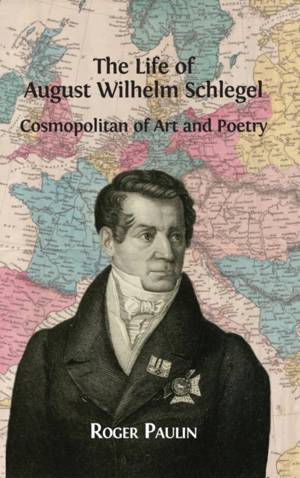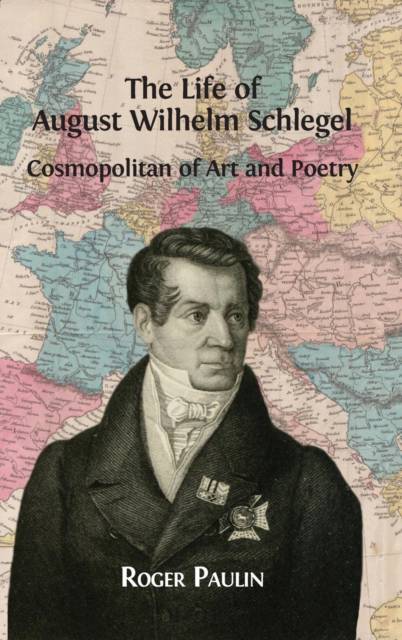
Bedankt voor het vertrouwen het afgelopen jaar! Om jou te bedanken bieden we GRATIS verzending (in België) aan op alles gedurende de hele maand januari.
- Afhalen na 1 uur in een winkel met voorraad
- In januari gratis thuislevering in België
- Ruim aanbod met 7 miljoen producten
Bedankt voor het vertrouwen het afgelopen jaar! Om jou te bedanken bieden we GRATIS verzending (in België) aan op alles gedurende de hele maand januari.
- Afhalen na 1 uur in een winkel met voorraad
- In januari gratis thuislevering in België
- Ruim aanbod met 7 miljoen producten
Zoeken
August Wilhelm Schlegel, Cosmopolitan of Art and Poetry
Cosmopolitan of Art and Poetry
Roger Paulin
Hardcover | Engels
€ 86,95
+ 173 punten
Uitvoering
Omschrijving
This is the first full-scale biography, in any language, of a towering figure in German and European Romanticism: August Wilhelm Schlegel whose life, 1767 to 1845, coincided with its inexorable rise. As poet, translator, critic and oriental scholar, Schlegel's extraordinarily diverse interests and writings left a vast intellectual legacy, making him a foundational figure in several branches of knowledge. He was one of the last thinkers in Europe able to practise as well as to theorise, and to attempt to comprehend the nature of culture without being forced to be a narrow specialist. With his brother Friedrich, for example, Schlegel edited the avant-garde Romantic periodical Athenaeum; and he produced with his wife Caroline a translation of Shakespeare, the first metrical version into any foreign language. Schlegel's Lectures on Dramatic Art and Literature were a defining force for Coleridge and for the French Romantics. But his interests extended to French, Italian, Spanish and Portuguese literature, as well to the Greek and Latin classics, and to Sanskrit. August Wilhelm Schlegel is the first attempt to engage with this totality, to combine an account of Schlegel's life and times with a critical evaluation of his work and its influence. Through the study of one man's rich life, incorporating the most recent scholarship, theoretical approaches, and archival resources, while remaining easily accessible to all readers, Paulin has recovered the intellectual climate of Romanticism in Germany and traced its development into a still-potent international movement. The extraordinarily wide scope and variety of Schlegel's activities have hitherto acted as a barrier to literary scholars, even in Germany. In Roger Paulin, whose career has given him the knowledge and the experience to grapple with such an ambitious project, Schlegel has at last found a worthy exponent.
Specificaties
Betrokkenen
- Auteur(s):
- Uitgeverij:
Inhoud
- Aantal bladzijden:
- 680
- Taal:
- Engels
Eigenschappen
- Productcode (EAN):
- 9781909254961
- Verschijningsdatum:
- 1/02/2016
- Uitvoering:
- Hardcover
- Formaat:
- Genaaid
- Afmetingen:
- 156 mm x 234 mm
- Gewicht:
- 1120 g

Alleen bij Standaard Boekhandel
+ 173 punten op je klantenkaart van Standaard Boekhandel
Beoordelingen
We publiceren alleen reviews die voldoen aan de voorwaarden voor reviews. Bekijk onze voorwaarden voor reviews.









